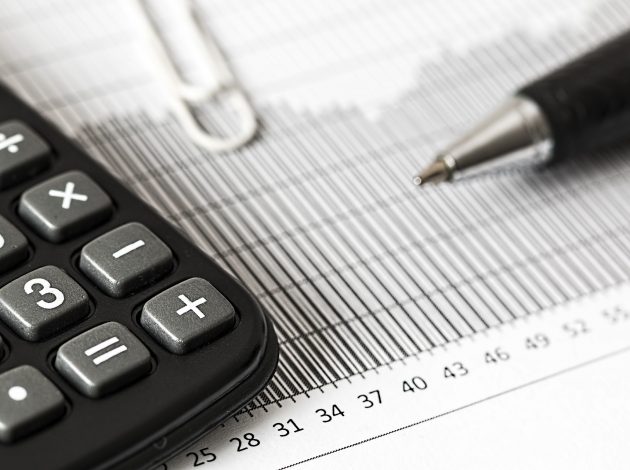GDP: a worthwhile, but incomplete, measure

Recently GDP has come under some close scrutiny for failing to capture unpaid work and the impact of economic growth on the environment. Jonathan Athow looks at GDP’s strengths as well as some other measures and statistics that can be used to understand wider measures of well-being.
National income and measures such as Gross Domestic Product (GDP) have often been criticised. Robert Kennedy famously quipped that these indicators measured ‘everything, in short, except that which makes life worthwhile’.
To me, GDP is an important measure, but was never designed to be an all encompassing measure of well-being. It is helpful in understanding our economy but there are issues that GDP does not, and should not, measure that are important to our well-being. To get a better measure of wellbeing, the answer is not to throw out GDP, nor to completely change it beyond recognition, but to supplement it with a wider set of statistics to paint a more complete picture of our world.
Primary purpose
GDP measures the market-based economic activity: its primary purpose is to measure an economy’s production, income and expenditure. To calculate GDP, we take all the economic activity and use market prices to weight these different items to estimate the total size of the economy.
There are a few exceptions to the market-based approach, notably that GDP includes government-provided services and the economic activity imputed for home owners. These are both close substitutes for market-based activity and their exclusion would result in a loss of comparability between countries and in the same country over time. For example, if we did not include services provided by the state then it would be difficult to compare the economies of countries with different levels of services were provided by the government. Likewise, if imputed rents were not included within GDP then an increase in home ownership would have the effect of lowering a country’s GDP.
As GDP is mainly a market-based approach, it excludes non-market activity. This means ‘home production’ activities such caring for your own children or volunteering to help a charity are not included.
Let me start with arguing why GDP as currently constructed is important. I see four connected reasons:
- GDP is a key driver of living standards as it determines how much we can consume as a country. By consumption, I do not mean just buying new cars, clothes and phones, but also healthcare, education and other services that are hugely important to our well-being. We also need to recognise that pension payments are paid out of current GDP;
- GDP tells us about the sustainability of the public finances. Most taxes are based on some form of market-based transaction: employment yields income tax and National Insurance Contributions while buying goods and services gives rise to VAT. If we are to plan our public finances and ensure their sustainability, measuring GDP and its components are very useful;
- Measuring GDP helps us to manage the economy. When setting monetary policy, decision makers will often take into account what is happening with GDP. This is because economic policy instruments such as interest rates affect GDP, and in doing so can affect inflation and employment that directly affect people’s standards of living. Without a good grasp on GDP, we would not be able to manage the economy well, increasing the chances of booms and busts; and
- Mis-measurement of GDP has real costs in terms of economic policy. Many people have commented that flawed measurement of the economy increases the risk of poor economic policy making. There is even some evidence that mis-measurement has direct effects on the economy as expectations become self-fulfilling.
While I think there are good grounds for valuing GDP, quantification of economic activity can be difficult in practice. The Independent Review of UK Economic Statistics by Professor Sir Charles Bean showed how the economy was becoming more challenging to measure. The growth in services, globalisation and technological change are all phenomena that we at the ONS are grappling with.
Influential statistic
GDP is an influential statistic, but there are some key issues of well-being that are not captured. For example:
- The non-market activity that GDP excludes is important to well-being. For example, the ‘home production’ of childcare is hugely valuable in terms of child development, and volunteering helps improve the lives of millions of people in the UK;
- Some of the benefit we get from goods and services – what economists refer to as the ‘consumer surplus’ – is not counted. GDP values goods and services at the price they are sold at, but if the value to me or you is higher than prices we pay we are even better off. Take, for example, free mapping services available on the internet – these are very valuable, but the cost of provision is relatively small. This difference between true benefit and price or cost is not included in GDP;
- Distributional issues matter: GDP is an aggregate measure, but who gets the benefit of this national income is hugely important. GDP as a measure is silent on these issues of distribution. Politicians will argue about which distributional issues are most important, but few would say they have no relevance at all;
- There are wider issues that are important to our lives, most notably the environment, and GDP does not tell us what is happening with environmental sustainability.
In light of these challenges people ask how should we, as the UK’s National Statistical Institute, respond?
While we constantly need to develop GDP as the economy changes, I would argue that it would be a mistake to change its core focus. It should not try to become a wider measure of well-being as the value we currently derive would be lost. Adding in ‘home production’ would not necessarily help us forecast tax receipts nor assist those responsible for running monetary policy to make decisions on interest rate policy. GDP is important in its own right, and let us not lose that.
Suite of measures
Instead we need to build a suite of measures that capture the important issues that GDP cannot include. At the Office for National Statistics, and across the Government Statistical Service, we are aiming to do just that through our ‘beyond GDP’ initiative, this includes:
- ‘Natural capital’, which is the benefit we get from the environment around us. This helps us to understand the value of our environment and different aspects of environmental sustainability. This is one of the wider so-called ‘missing capitals’ and includes issues such as human capital, which is the value of the skills and experience of the people within a country;
- Distributional analysis, understanding trends in inequality and how Government policies are affecting the distribution of income and wealth in our economy;
- Measuring home production, the value of all the activities we do for ourselves, such as cooking and cleaning, childcare and volunteering. In 2014, this was estimated to be just over £1 trillion, equivalent to just over 55 per cent of GDP; and
- Directly measuring people’s well-being by asking them about issues such as life satisfaction and anxiety.
GDP is a really important to managing and understanding our economy and promoting economic prosperity. But it would be wrong to believe that GDP tells us everything about our well-being. To answer this more rounded question, we need to supplement GDP with a wider set of measures to capture those things that do make life worthwhile.
Jonathan Athow is Deputy National Statistician for the ONS
